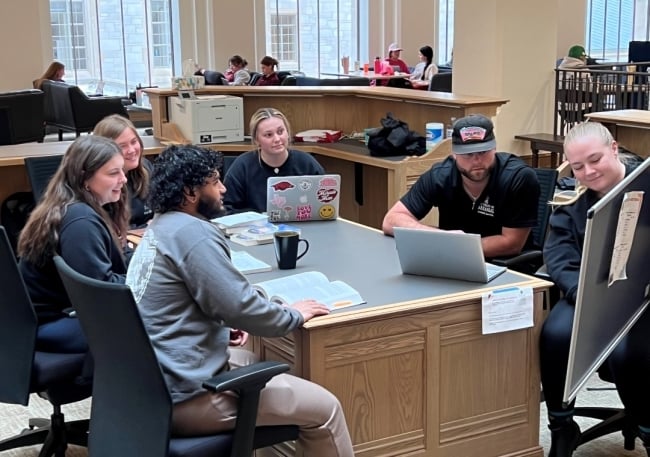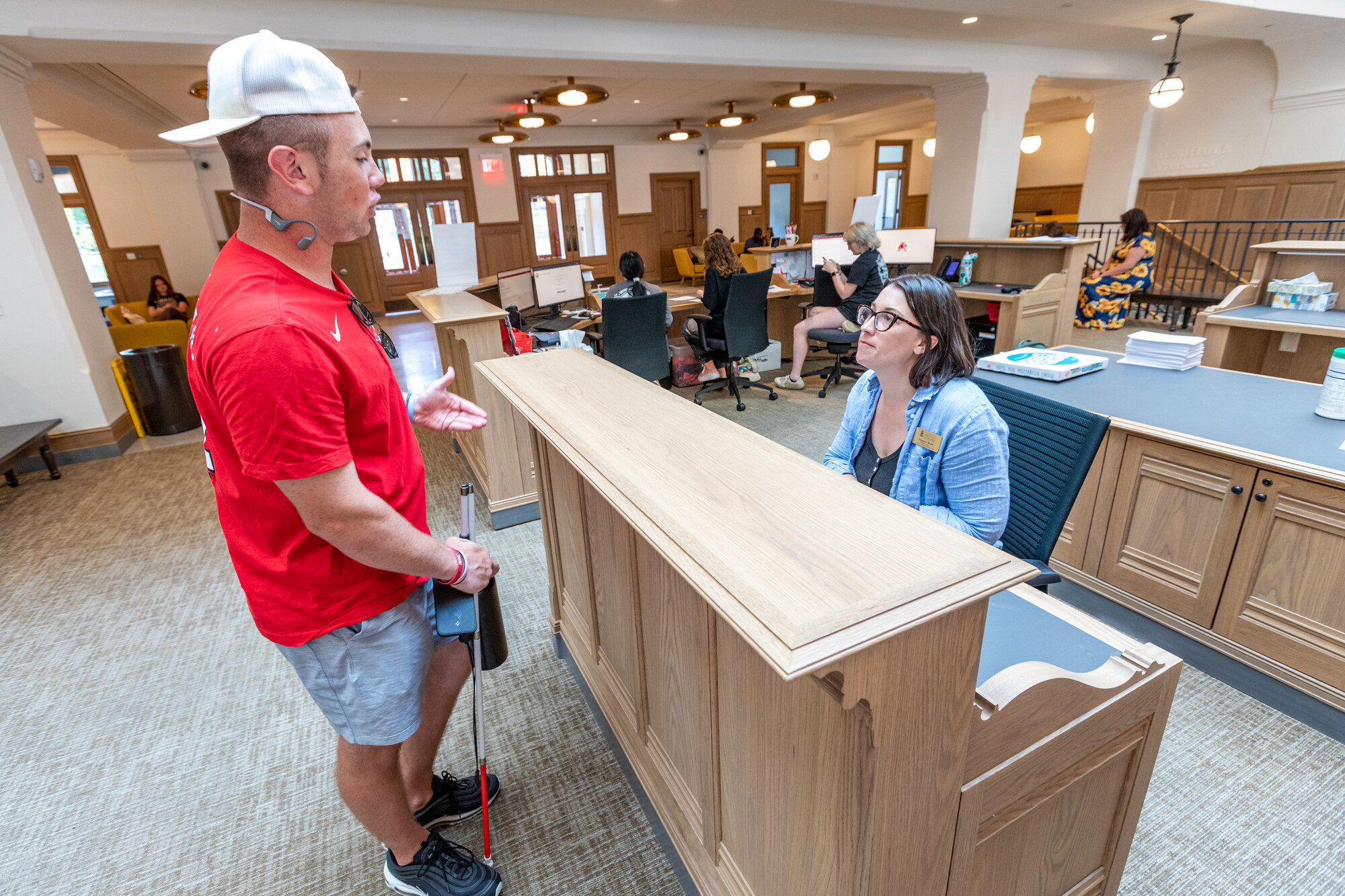You have /5 articles left.
Sign up for a free account or log in.

Students at in the CORD advisory board provide feedback on their various departments in biweekly meetings.
University of Arkansas
Student-employees at the University of Arkansas have a new opportunity to lead conversations related to their work in the student success center.
The student staff advisory board, established in January, meets biweekly and looks to positively impact student experiences on campus and with the center, as well as their experiences as employees and facilitators of academic support. For administrators, the process improves student feedback channels and centers operations on the learner.
The board: The board is made up of seven undergraduate students who work in student-facing departments in the university’s student success center, the Cordia Harrington Center for Excellence (CORD).
This semester’s inaugural board members include representatives from the writing center, career services, IT, the welcome desk, the 360 program for transitioning to campus life and the tutoring center.
Students applied and provided written responses detailing their interest, what changes they’d advocate for and how they’d stay involved in the board and the campus community, says senior Kristen Fite, a CORD board member and student employee. There are no eligibility requirements for year in college or longevity as a student worker in the center.
As board members, students are responsible for interacting with the general campus community regarding board projects and initiatives. The board meets biweekly, and members provide regular updates on their program operations.
Students receive a stipend for their service on the board each semester as funded through the University of Arkansas endowment.
“It was really important to us that we provide a stipend, because we know on our campus and other campuses, sometimes some of our students that could move into student leadership roles … are held back by the fact that it’s taking away time that they could be making money,” says Kathryn Lammers, student advocate at the CORD and the staff adviser for the board.
The University of Arkansas has other student advisory boards on campus, and staff leaned into those resources when developing the CORD board, Lammers adds.
The mission: For the first semester, the board is looking to establish its role in the CORD and how it can support other student employees. The center opened in January 2022 and has around 300 student employees, most of whom are undergraduate students, Lammers says.
The impact: Through the board, administrators and staff hope students will grow as leaders, have a deciding voice in decision-making regarding student employee affairs and connect to fellow student workers.
So far in her time as a board member, Fite has gained insight into other departments and their work, created deeper relationships with her fellow students, and been able to contribute to the campus in meaningful ways through board decisions, she says.
Fite has worked in the CORD for over a year and spends “all day, every day,” in the center. “I feel like this is my community on campus, and so to have the chance to communicate any concerns I have, but also celebrate other people in the building that I’ve been working with, has been very great and very rewarding.”

The University of Arkansas
The student staff advisory board also presents an opportunity for holistic student support as identified by student employees, particularly for first-generation and Pell Grant–eligible students who can benefit from additional academic help, says Trevor Francis, associate vice provost and director of student success.
“Part of the role of this board is to help us identify barriers to student success—the issues and problems on our campus—that we can all come up with creative solutions together,” Francis says. “We’ve already made quite a few strides just by listening and then strategizing together.”
The future: A target for the CORD advisory board is to keep momentum going next academic year and beyond, Francis says.
“They have the momentum to really be change makers on campus, so making sure that we [administrators and staff] do our part to support them and give them the opportunity to voice what they’re seeing,” Francis says.
Future boards will be larger as well, with closer to 10 members each semester and a more formal structure with titles like president and vice president.
While higher ed professionals established the board and its role, Lammers hopes it evolves to be even more student-owned. Her advice to those at any institution is this: “Just do your best to lay the foundation of the areas that you want the board to impact, and then kind of get out of their way. Let them make those decisions moving forward.”
If your student success program has a unique feature or twist, we’d like to know about it. Click here to submit.




